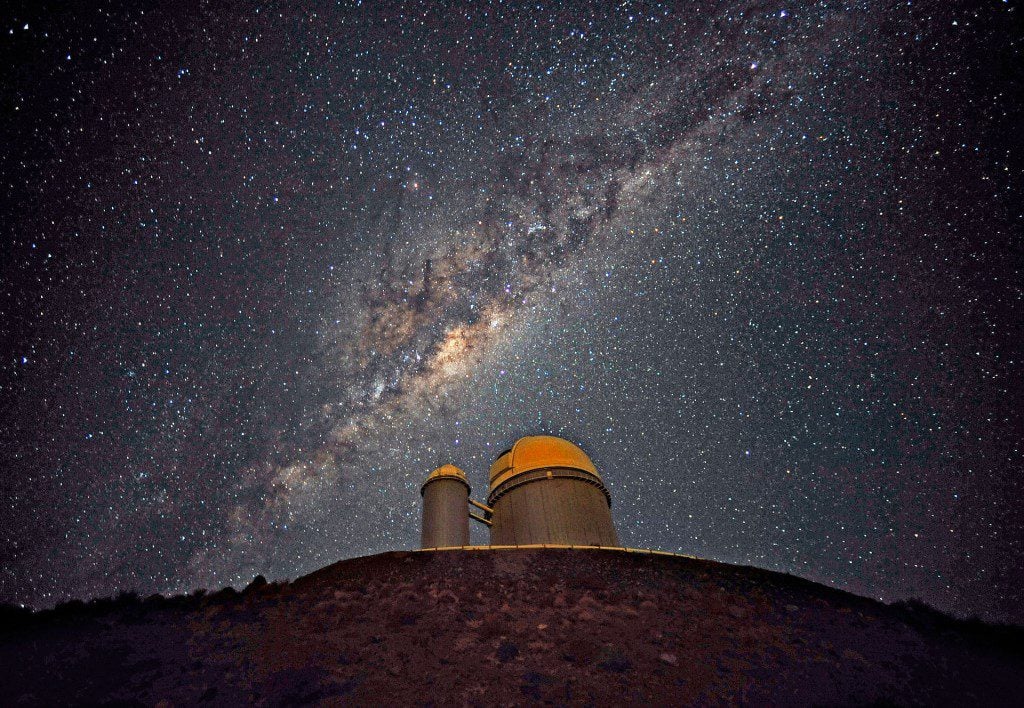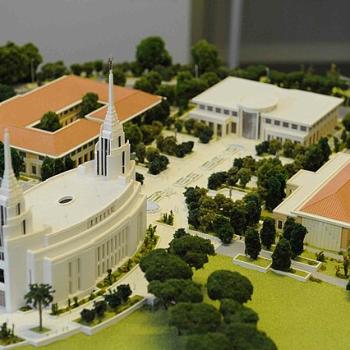
From David Wilkinson, God, Time and Stephen Hawking: An Exploration Into Origins (London: Monarch Books, 2001), 145-146:
Some may ask at this point, why is the universe so vast? If God is a creator, then why not just one Sun and one planet? This would be sufficient to support life. Part of the answer is to be found in the previous chapters. We saw that the universe was so balanced that in order to give the billions of years for stars and elements like carbon to be produced, then it needs to be large. However, it is not a full answer, for it simply begs the question of why did carbon have to be formed that way? The only thing that Christianity replies at this point is that the God of the Bible is a God of extravagant generosity. Theology calls this characteristic ‘grace’. He creates with an extravagance that reflects his own greatness and glory. Another Old Testament psalm celebrates this by beginning, ‘The heavens declare the glory of God’ (Psalm 19:1). It again is not a full answer, but it does make sense that the creation should in some way reflect the creator.
There is also awe in the scientific enterprise itself. If most of science is dull hard work, there are those moments of discovery which John Habgood, the former Archbishop of York and research chemist, would call, ‘Wow, look at that!’ moments. The physicist Richard Feynman, though not a Christian, nevertheless spoke of being a scientist as: ‘The same thrill, the same awe and mystery, comes again and again when we look at any question deeply enough . . . it is true that few unscientific people have this type of religious experience.’
This kind of response has a long history in scientific thought. Kepler spoke of ‘joy’ and being ‘ravished’ at the creation. Einstein, who was hesitant about the idea of a personal God himself, however was struck by the logical simplicity of the universe. The complexity of the physical universe flows from the basic laws and initial conditions that are comparatively simple. That underneath complexity lies simplicity is a discovery which evokes awe in many scientists. Perhaps it is this that is reflected in the words of Simone Weil: ‘Scientific research is simply a form of religious contemplation.’
Rev. Dr. David Wilkinson is a British Methodist theologian — he holds a Ph.D. in systematic theology — who teaches at the University of Durham. So what does he know — anti-scientific fundamentalist and obscurantist that he undoubtedly is! — about science? How dare he speak on the subject? Well, it’s probably worth mentioning that he also holds a doctorate in theoretical astrophysics and that he is a Fellow of the Royal Astronomical Society.
***
Incidentally, the notes I’ve been posting here are being cited by certain of my critics as proof of my lack of originality. And I must confess that I’m so very unoriginal that it had never so much as occurred to me that notes drawn from one’s reading ought to be original. They’re notes, after all.
***
By the way, my fan and frequent correspondent “Nomen Nescio,” writing from his perch over at the atheistic ex- and anti-Mormon “Dr. Shades” board, has shared this important though rather opaque product of his recent thinking:
pasterson-meldrum cult comedy act comming soon to a venue near you.
That’s the entirety of his latest opus. I’m sure that it must be very profound.












